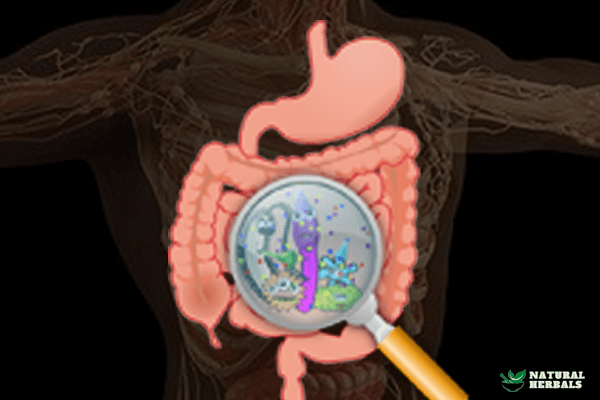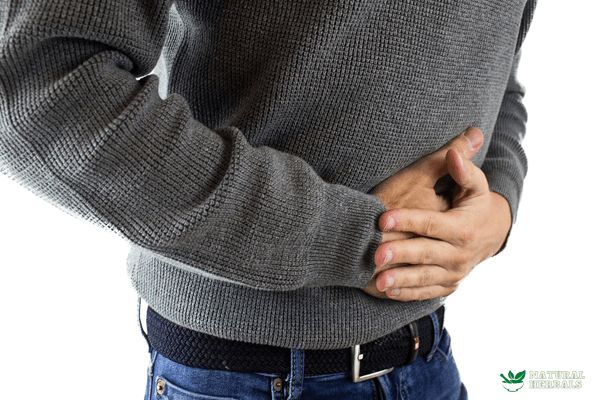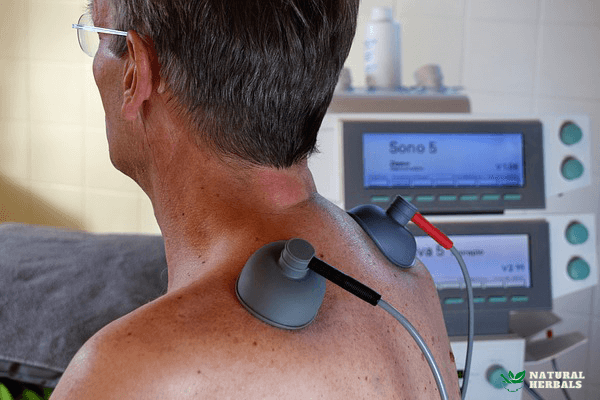
Diarrhea is having frequent water-thin or watery stools and is usually the result of an infection. Persistent diarrhea can also be the result of a (serious) intestinal disease. Usually diarrhea goes away on its own after a day or two. But it can also last longer. Diarrhea may be accompanied by nausea and vomiting and sometimes a fever.
If you suffer from prolonged or severe diarrhea, it is important to see your doctor to find out the cause. Diarrhea can cause you to lose fluids quickly, which can lead to dehydration, especially in babies, children and the elderly. Taking in enough fluids is critical when you have diarrhea. You can also use ORS, which is a mixture of salts and dextrose that you should dissolve in water.
Acute diarrhea symptoms and definition
Acute diarrhea is a sudden deviation from the usual defecation pattern for a person with a maximum duration of 14 days, in which the frequency and quantity of stools have increased and the stools contain more water than usual.
Acute diarrhea occurs suddenly. When the stool is slightly less firm than normal, it is not immediately called diarrhea. This is often due to an incorrect diet. A high-fiber, healthy diet is important for good quality stools.
Additional symptoms of watery stools
Diarrhea may be accompanied by bloating, abdominal cramps, flatulence, and sometimes vomiting. Diarrhea may at some point cause an irritated or burning anus. With diarrhea, it is especially important to avoid dehydration. Diarrhea is common in all age groups and diarrhea is a reason for many people to take a day off from work or school. An average adult has about four episodes of acute diarrhea each year.
Possible causes of acute diarrhea
Diarrhea can be caused by such things as:
Viral infections
Viral infections (stomach flu) cause most cases of diarrhea and are usually associated with mild to moderate symptoms with frequent, watery bowel movements, abdominal cramps, and a mild fever. The symptoms usually last about 3 to 7 days.
Bacterial infections
Bacterial infections cause the more severe cases of diarrhea. Eating spoiled food can lead to food poisoning. The most common symptoms of food poisoning are nausea, vomiting (vomiting) and diarrhea.
Antibiotics
Use of antibiotics can lead to an overgrowth of Clostridium difficile (C diff) bacteria in the intestines. This disruption of the intestinal flora can cause severe diarrhea. Diarrhea is not only a possible side effect of some medications such as antibiotics, but also of certain painkillers and antacids.
Intestinal disorders
Intestinal disorders or diseases such as Inflammatory bowel disease (Crohn's disease and ulcerative colitis), irritable bowel syndrome, diverticulitis, collagenous colitis and celiac disease can cause diarrhea.
Food allergy or intolerance to foods
Food allergy or intolerance to foods, such as artificial sweeteners and lactose (intolerance to milk sugar) can cause diarrhea.
Disorders of the liver, gallbladder or pancreas
Diarrhea can occur with conditions of the liver, gallbladder or pancreas. These conditions are often accompanied by other symptoms.
Anxiety and tension
Anxiety and stress can cause acute diarrhea.
Chronic diarrhea
In addition to acute diarrhea, there is chronic diarrhea. One speaks of chronic diarrhea if it lasts longer than 14 days. Chronic diarrhea usually involves different causes than acute diarrhea. Some of the most common causes of chronic diarrhea are irritable bowel syndrome (PDS), chronic inflammatory bowel diseases (Crohn's disease, ulcerative colitis and microscopic colitis), malabsorption syndromes where food cannot be digested and absorbed, and chronic infections.
When to consult a family physician?
Acute diarrhea resulting from eating or drinking contaminated food or water or an abdominal flu usually goes away on its own. The family physician should be consulted if there is:
- High fever;
- Moderate or severe abdominal pain or tenderness (i.e., pain felt in the abdomen)
- Bloody diarrhea (this may include indicating a serious intestinal infection)
- Diarrhea in persons with serious underlying disease and in whom dehydration can have serious consequences, for example, people with diabetes (diabetes), cardiovascular disease, and AIDS
- Severe diarrhea that shows no improvement after 48 hours; Moderate or severe dehydration (e.g., the person urinates less than normal)
- Prolonged vomiting
- Diarrhea that occurs during or immediately after completing antibiotic therapy, as the antibiotic-associated infection with C. difficile requires treatment
- Diarrhea after returning from tropical areas, as it may be due to an infection with the parasite Giardia which requires treatment
- If the diarrhea is accompanied by a skin rash
- Diarrhea that develops in patients with chronic intestinal diseases such as colitis, or Crohn's disease, because diarrhea in them indicates a worsening of the underlying disease or a complication of the disease
- Chronic or persistent diarrhea
- Recurring Diarrhea
Diarrhea in babies and children:
- Drowsiness
- Severe and prolonged abdominal pain
- Vomiting and water-thin diarrhea
- Not wanting to drink in water-thin diarrhea, especially in children under 2 years of age
- Diarrhea in infants up to 3 months (infants with diarrhea should always be examined by a physician)
- Blood in the stool
- In children younger than 2 years of age, diarrhea should subside within 12 hours
- When parents or caregivers are concerned
- Fever that persists for more than 3 days.
Research and Diagnosis
The diagnosis of acute diarrhea is made by the general practitioner on the basis of the pattern of symptoms. Furthermore, the doctor may perform the following examinations (or have them performed), depending on the severity of the (other) symptoms.
Physical examination
The family doctor may examine the abdomen to determine the precise location of the abdominal pain. He can examine the abdomen using a stethoscope. In this way, he can hear if the intestines are in order.
Review of medications
The family physician may ask questions about the medications the patient is taking in order to rule out the possibility that the diarrhea is caused by certain medications.
Blood test
A complete blood test can help determine what is causing the diarrhea.
Stool examination
The results from the stool examination provide information, among other things, about possible infections and (chronic) intestinal inflammation, the functioning of the intestinal function and possibly also the presence of polyps in the colon (pre-stage of colon cancer).
Treatment: stop diarrhea
Diarrhea often does not require treatment. Usually the symptoms subside spontaneously within a few days.
Diarrhea inhibitors
It is not recommended to use diarrhea inhibitors such as activated charcoal or loperamide for acute diarrhea. The goal is precisely to make the causative agent of acute diarrhea, such as a bacterium or parasite, leave the intestine quickly through the stool. When using a diarrhea inhibitor, the bacteria or parasites can settle in the intestinal mucosa, with all its consequences.
Only in an emergency can a person with diarrhea take a medication for at most two days to make sure the stools come less frequently. An emergency, for example, is when someone has to travel. Do not use these drugs if you have a fever or in children under the age of eight.
Preventing dehydration in diarrhea
There is also no treatment that will make diarrhea go away faster. It is important that the person with diarrhea drink more than usual to prevent dehydration. When diarrhea is severe, the patient may be
Antibiotica
The doctor may prescribe an antibiotic for persistent watery stools, abdominal cramps and/or fever. Antibiotics can help treat diarrhea caused by bacteria or parasites. If a virus is the cause of the diarrhea, antibiotics will not help.
Other medication
If the family physician determines that an antibiotic is causing the diarrhea, he may change the treatment by lowering the dose or switching to other medications.
Treat underlying condition
If the diarrhea is caused by a (serious) disease or condition, such as inflammatory bowel disease, the underlying disease will be treated so that the diarrhea is also reduced and the patient's health status improves.
The patient may be referred to a specialist, such as a gastroenterologist or MDL (Gastrointestinal, Liver, Bowel) physician, who will formulate a treatment plan. The patient may be prescribed a diarrhea inhibitor for an extended period of time to reduce symptoms.
Hygiene measures
When diarrhea occurs, it is important to observe hygiene measures. Wash hands thoroughly after each toilet trip and check that the hands and clothes of children with diarrhea are clean after they have gone to the toilet or been given a clean diaper.
Relieving diarrhea with natural remedies
BRAT Diet
The BRAT diet is one of the best known natural remedies for diarrhea. BRAT stands for bananas, rice, applesauce and toast. The idea is to eat only these foods for 48 hours and nothing else. You do need to drink several liters of water to replace the fluids you have lost due to diarrhea.
Whole grain rice
Eat whole grain rice as much as possible if you suffer from diarrhea. The vitamin B present in whole grain rice is an efficient natural remedy for diarrhea. To further enhance the effect of whole grain rice, you can also drink the cooking water of the rice.
Water
People with diarrhea should drink at least eight glasses of water a day. Water not only rebalances the body, but it also replaces the fluids you have lost through diarrhea.
Glucose and salt
Diarrhea also causes your body to lose a large amount of glucose and electrohydrates which can make you feel weak. You can remedy this by drinking a glass of water to which you have added 1 teaspoon of sea salt and 1 teaspoon of sugar.
Buttermilk
One of the best natural remedies for diarrhea is to drink buttermilk. This is because the acids of buttermilk fight germs and bacteria. Drink three to four glasses of buttermilk/butter milk per day.
Carrot juice and carrot soup
Get a pack of fresh carrots and make carrot juice from them. Carrot juice is ideal for making bowel movements less watery. Carrot juice is especially effective on an empty stomach.
In addition to carrot juice, carrot soup is also indicated to remedy diarrhea. Boil half a kilo of carrots in 150 ml of water until the carrots become tender. Puree the carrots and then add the cooking water. Season to taste with one-fourth tablespoon of sea salt. Drink a small amount of this soup every half hour.
Cinnamon
Put 1 tablespoon of cinnamon in a cup of hot water. Drink out at once.
Turmeric
Turmeric is a wonder drug when it comes to keeping the digestive system healthy. Use powdered turmeric and dissolve a small amount of it in buttermilk or boiling water.
Pomegranate
Pomegranate juice is an effective natural remedy for diarrhea. By drinking 50 ml of pomegranate juice every hour, you will keep diarrhea under control.
Blackcurrant tea
For mild diarrhea, drinking blackcurrant tea is a good solution. In fact, all forms of herbal teas are suitable for relieving diarrhea, but blackcurrant tea is even more effective than the others.
Lemon, ginger and pepper
Make a mixture of half a teaspoon of lemon juice, half a teaspoon of ginger juice and one-fourth teaspoon of ground pepper. Take this natural remedy twice a day.
Apple Vinegar
Put one teaspoon of apple cider vinegar in a glass of water. Drink a glass with each meal.
Ginger beer
You really can't miss your pint of beer despite your sick condition? Then opt for ginger beer, as it will make your bowel movements less watery.
Avoid fats, spices and preservatives
As much as possible, avoid consumption of fats (both animal and vegetable), spices and preservatives. After all, these foodstuffs aggravate the symptoms of diarrhea. It is also better to avoid milk and other dairy products. Yogurt, on the other hand, is recommended to remedy diarrhea.

I am an official member of International Association of Therapists and research natural healing methods and herbs. The posts are my findings.




